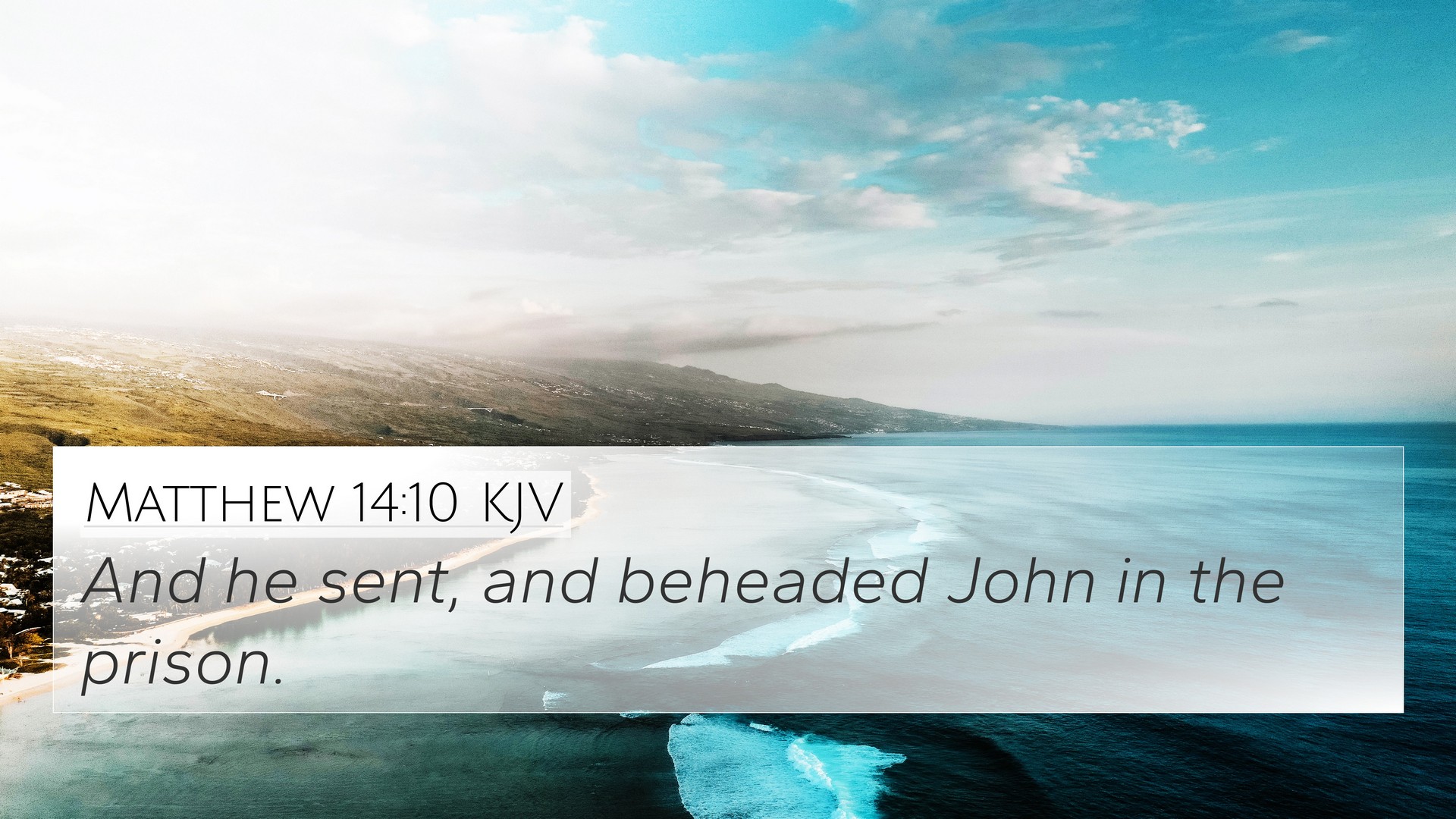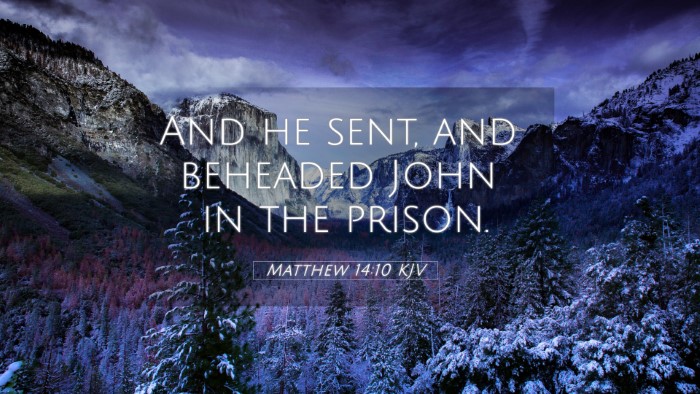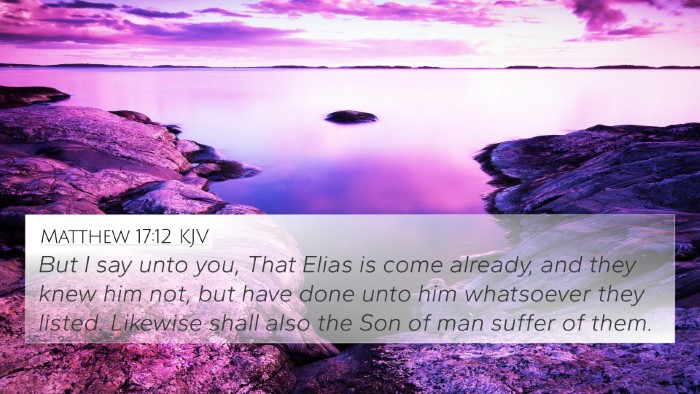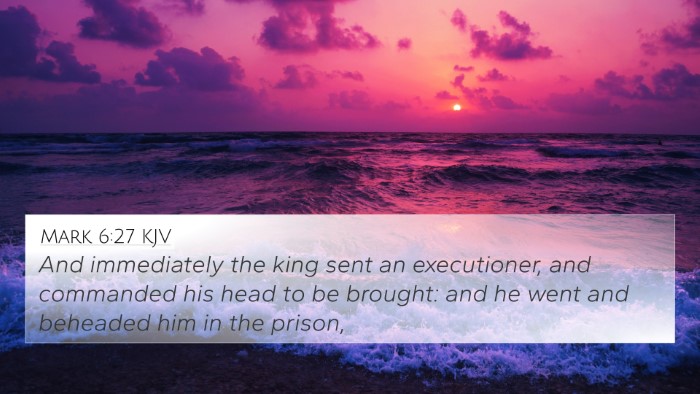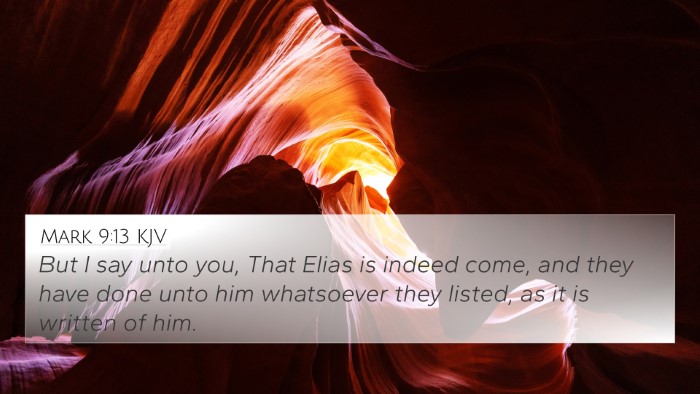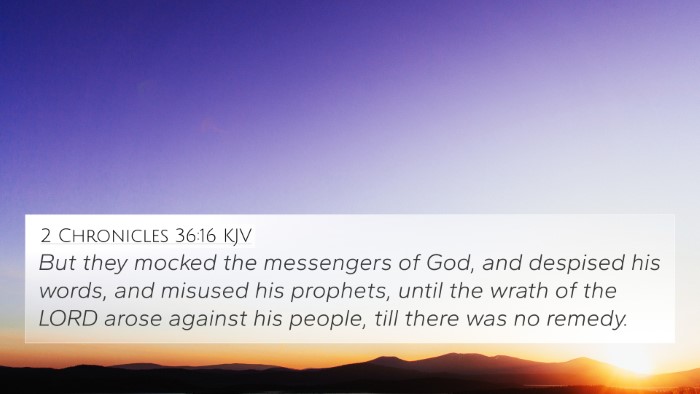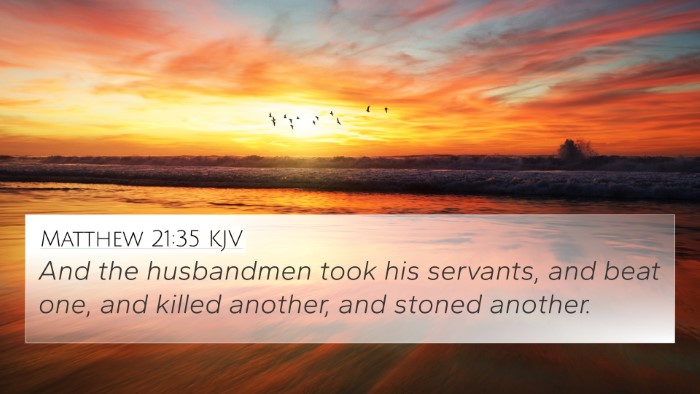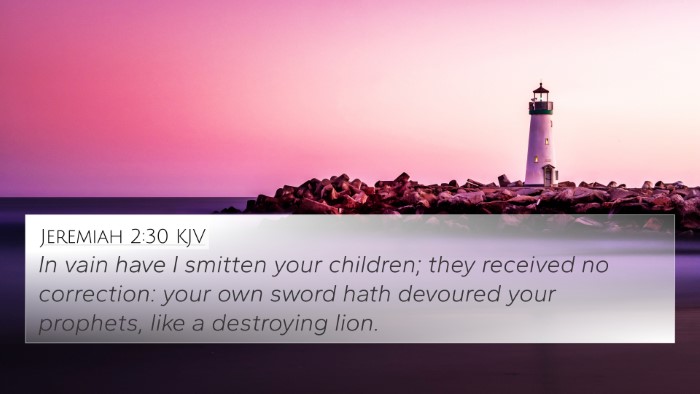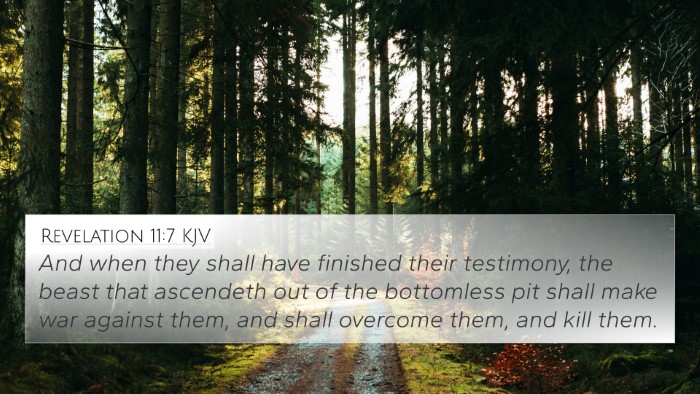Understanding Matthew 14:10
Matthew 14:10 states, "And he sent and beheaded John in the prison." This verse depicts the tragic execution of John the Baptist, revealing deep themes of injustice, fear, and the consequences of moral failure. This account raises significant questions about authority, righteousness, and prophetic witness, which have been examined by biblical commentators.
Contextual Analysis
John the Baptist had publicly condemned Herod Antipas for marrying Herodias, his brother's wife. This condemnation led to John’s arrest and eventual beheading. The events surrounding this execution hold profound implications regarding the intertwining of political power and religious truth.
Commentary Insights
- Matthew Henry: He highlights the role of John as a true prophet whose voice was silenced due to the wickedness of leaders. Henry teaches that the fate of John reflects the hostility that truth can provoke in the hearts of those in power.
- Albert Barnes: Barnes emphasizes the boldness of John in declaring the truth despite the consequences. He frames John’s execution as a reminder of the cost of discipleship and faithfulness.
- Adam Clarke: Clarke points to the duplicity of Herod and his fear of losing popularity. He discusses the influence of Herodias and how emotional decision-making can lead to tragic outcomes.
Thematic Connections
This verse opens the door to various biblical themes, such as:
- Prophetic Ministry: John the Baptist embodies the archetype of the prophet who is often rejected and persecuted. This connects to other prophets like Elijah (1 Kings 19:1-2) who faced similar fates.
- Moral Integrity: John’s commitment to righteousness is reflective of the Christian duty to stand firm in truth, paralleling Ephesians 6:14 on putting on the belt of truth.
- Human Authority vs. Divine Will: The execution symbolizes the clash between human authority and divine will, echoing Romans 13:1-2 which discusses obedience to governing authorities.
- Fear and Manipulation: Herod's actions are marked by fear, a theme that can be traced back to Genesis 3:10-12, where Adam and Eve's fear of God led to blame-shifting and hiding.
- Outcomes of Disobedience: The story serves as a cautionary tale of the repercussions of disobedience to God's calling, resonating with Proverbs 14:12 about the ways that seem right to a man.
Cross-References
The following biblical passages can be examined for deeper understanding and insight into Matthew 14:10:
- 1 Kings 18:17-19 - The stand of Elijah against wicked rulers.
- Matthew 11:11 - Jesus’ affirmation of John’s greatness among those born of women.
- Luke 3:19-20 - Further details regarding Herod’s imprisonment of John.
- Mark 6:17-29 - A parallel account of John’s execution providing additional context.
- Acts 12:1-2 - Another account of persecution of God’s messengers in the New Testament.
- Matthew 5:11-12 - The Beatitudes reflecting the blessedness of the persecuted.
- 2 Timothy 3:12 - The assurance that all who desire to live godly in Christ will suffer persecution.
Conclusion
Matthew 14:10 serves as a powerful reminder of the cost of being a follower of Christ and a witness to the truth. It opens up numerous avenues for Bible verse cross-references, allowing for a deeper comparative analysis and understanding of the connections between Bible verses, particularly in the face of injustice and the sacrifice required for faith. Exploring the linking Bible scriptures that relate to this passage enriches one’s understanding of the Christian narrative and the profound lessons of faith, courage, and truthfulness.
